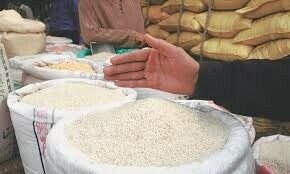KARACHI: Market stakeholders and manufacturers of goods offered different views on retail intelligence (RI) of consumer items in Pakistan, with some saying that they did it on their own while others outsource companies with the goal of improving sales.
Responded to RI queries by Dawn, the companies said they conducted the research on market share of products, future strategy relating to product sales, finding new markets and impact of rising cost of living on sales of consumer items.
“We do not engage any outsource market intelligence. The information that is available through media is analysed in-house,” said Indus Motor Company (IMC) CEO Ali Asghar Jamali.
Responding to Dawn, he noted that Karachi being the most populous and highest revenue generating city provided the largest market not only for the auto industry but for all other industrial segments too.
“We do a PDCA [Plan-Do-Check-Act] for every action that we take. In case we fall short of a target, we evaluate the reasons and accordingly take action. Sometimes these shortages could be due to a temporary market shift and sometimes it’s due to share movement towards or from the competition. Our countermeasure will depend on the nature of the root cause,” Mr Jamali said.
Although the Pakistani market is price sensitive, customers pay higher prices for reputable brands, he added.
“We are observing that consumers focus more on the sport utility vehicle (SUV) segment that is targeting middle segment sedans. The consumer can now choose between a sedan and SUV depending on their need and utilisation,” he said. On changing the RI strategy in the last few years, he said, “As the market grows, everyone is able to enjoy a bigger slice of the pie and the customer is able to enjoy a wider array of options. For us, this is a big opportunity!”
Deputy General Manager Trade and Marketing of English Biscuits Manufacturers (EBM) Rais ur Rehman said the company worked on a combination of in-house and outsourced RI.
“Our in-house team has its own methodology of accumulating and analysing retail data for all our segments of the biscuit category. We also hire market intelligence companies to find out how our retail system is doing in different regions and categories,” Mr Rehman said.
For biscuit consumption, Karachi is the highest contributing city, he said, adding that the company’s plain biscuits held the biggest market share in the country.
On the drop of sales, he said the company found out the reasons through specific ways. “The loss in sales can either be due to an issue from the production, the distribution, or the consumption end. Based on our quick hypothesis, we get into the details of the issue and develop our plan to recapture the market,” he explained.
Mr Rehman said rising cost of living has resulted in lower disposable incomes and affected the purchasing power of the people.
Meanwhile, talking to Dawn, Farah Asim, the Head of Corporate Communications, Haleeb Foods Limited (HFL), said the company did have external business partners that specialise in RI.
“However, feedback from our sales force present in the market also supports us tremendously. This data is crucial as it keeps track of sales and marketing initiatives that we take up on a routine basis,” she said.
Ms Asim said HFL conducted market surveys in order to stay abreast on consumer preferences and ever-changing market trends.
Responding to a question on which city held a major share in tetra pack milk consumption, she said, “Though the difference between Karachi and Lahore is not a lot, yet the latter is on the higher side.”
She added that plain milk category held the highest share overall. “In the last one year we have experienced significant growth as compared to the previous year. Consumers are now highly inclined towards safer products” Ms Asim said.
Far away from the research and tech-based methodologies employed by fast-moving consumer goods companies, brokers and wholesalers in Pakistan rely on the simple demand and supply dynamics.
For commodities like pulses, rice, sugar and wheat etc. wholesalers do not outsource any company to manage RI for their products, said Patron of Karachi Wholesalers Grocers Association Anis Majeed said.
In Karachi, there are five big markets where brokers of millers and wholesalers sell their product by verbal marketing. The rates also are fixed by demand and supply on verbal quotations by the brokers, he said.
Published in Dawn, March 28th, 2021















































Dear visitor, the comments section is undergoing an overhaul and will return soon.